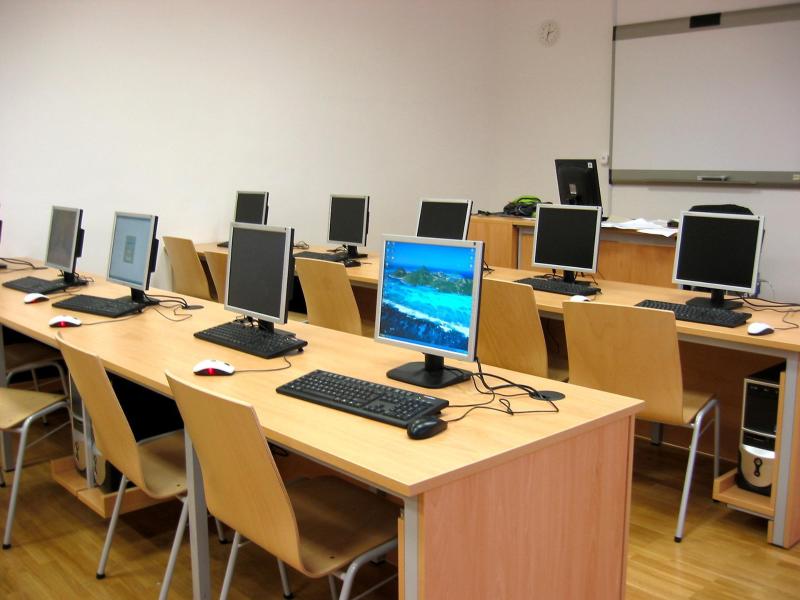
- The EIB grant covers technical and advisory support for project preparation and public procurement related to school infrastructure upgrades, and supports the Government of Montenegro in developing long-term monitoring and evaluation standards for education projects.
- This is the second grant provided to Montenegro this year by EIB Global, a dedicated development branch of the EIB created in 2022 to support EIB operations beyond the European Union.
- Since 2020, the EIB has invested close to €200 million in key sectors of the Montenegrin economy, supporting higher resilience to crises.
The European Investment Bank (EIB), the bank of the European Union, will provide a grant of up to €2.9 million to the Government of Montenegro to accelerate the modernisation of the national education system through the upgrade, construction and reconstruction of pre-school, school and vocational school infrastructure in the country. The EIB grant will cover technical and advisory support for project preparation and the public procurement process, and for developing national monitoring and evaluation standards for similar projects. It will accelerate upgrades that are expected to create an additional 2 070 places in schools across Montenegro, and 530 new full-time jobs.
The operation supports the ongoing modernisation of the national education system as part of the €18 million Montenegrin education programme, which the EIB signed with Montenegro in 2019. The programme finances the procurement of modern equipment and the construction and renovation of public education infrastructure, including kindergartens, primary, secondary and vocational schools, as well as the provision of information and communications technology (ICT) equipment and school furniture. The grant stems from the Economic Resilience Initiative (ERI), which aims to support economic growth, job creation, social cohesion and the development of vital infrastructure projects in the Western Balkans.
EIB Vice-President Lilyana Pavlova, who is responsible for operations in Montenegro, said: “We are pleased to be signing the second grant for Montenegro this year under our new EIB Global branch. By helping to expand and improve education services, the EIB is ensuring equal access to high-quality learning conditions for all children, thus fostering inclusivity and equality. In this way, we are contributing to the foundation of a modern education system, which will improve youth employability and promote economic growth in the country. The introduction of ICT equipment will accelerate the digital transformation in Montenegro and access to digital skills.”
Oana Cristina Popa, EU Ambassador and Head of the EU Delegation to Montenegro, said: “The European Union is Montenegro’s number one partner when it comes to reforming the education system. Under our new Instrument for Pre-Accession Assistance, we will work jointly with other development partners to help the government modernise the education system. Our investments will address overall weaknesses in the learning process and improve the inclusion of vulnerable groups such as students with disabilities, Roma and other minority groups. While we plan to channel our pre-accession funds mostly through a direct budget support programme, infrastructure needs will be supported by the EIB and other financial institutions, in line with Montenegro’s needs. Our mutual support programmes are complimentary and can help the country achieve the best results.”
Background information
About EIB Global:
EIB Global is the EIB Group’s new specialised arm dedicated to increasing the impact of international partnerships and development finance. EIB Global is designed to foster strong, focused partnership within Team Europe, alongside fellow development finance institutions and civil society. EIB Global brings the Group closer to local people, companies and institutions through our offices across the world.
https://www.linkedin.com/company/eib-global/
About the EIB in the Western Balkans:
The EIB is one of the leading international financiers in the Western Balkans. Since 2009, the Bank has financed projects totalling almost €10 billion in the region. Besides providing continued support for the reconstruction and upgrade of public infrastructure, since 2010 the EIB has expanded into many new areas, such as healthcare, research and development, education and SMEs.
About the EIB in Montenegro:
The EU bank has been active in Montenegro since 1977 and has provided almost €1 billion worth of loans to the country, mostly in support of SMEs, education and transport infrastructure.
Economic Resilience Initiative
The Economic Resilience Initiative (ERI) was created in 2016 in response to a call from the European Council. The objective of the initiative is to help shift patterns of migration in the medium to long term and provide support to forcibly displaced populations by increasing the resilience of economies to future shocks. The ERI is doing this by mobilising finance to support growth, job creation, vital infrastructure projects and social cohesion in the European Union’s neighbouring regions.